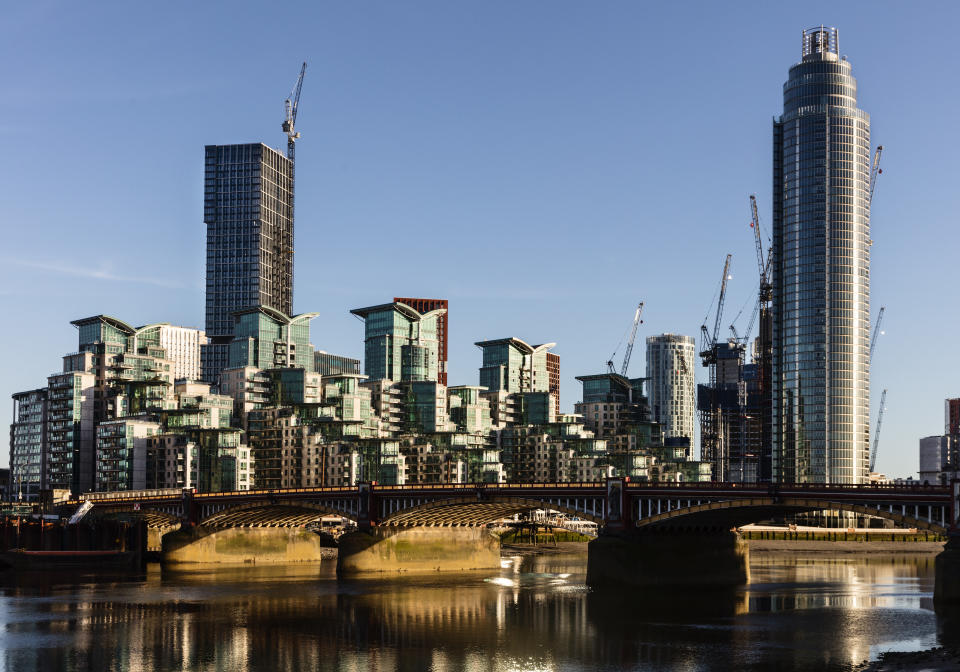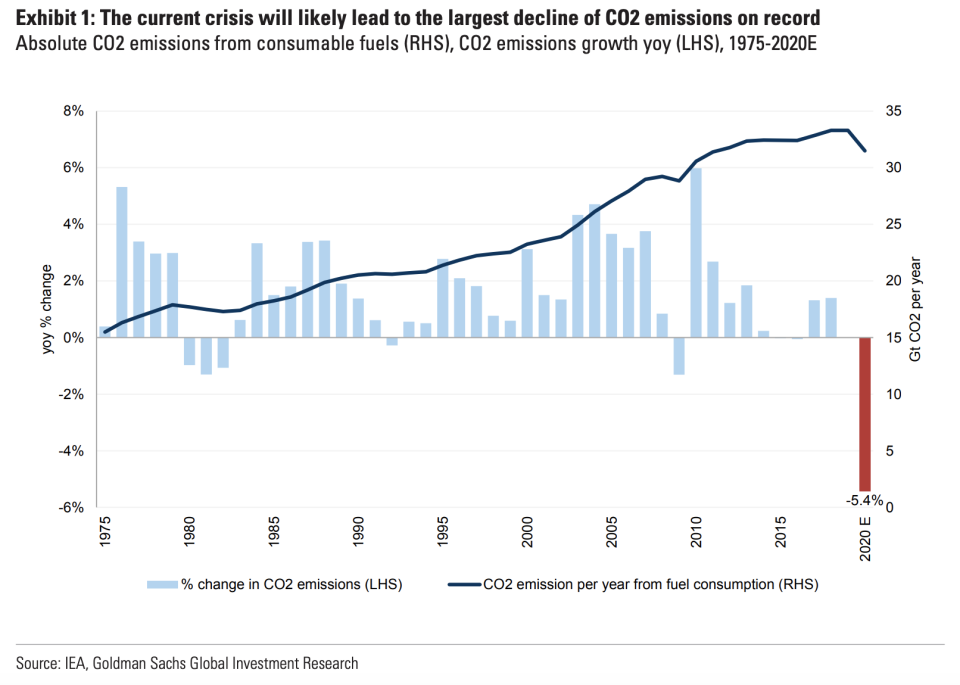Coronavirus shutdown to cause 'largest decline of CO2 on record'

The global coronavirus shutdown is likely to lead to the “largest decline of CO2 emissions on record,” according to analysts, who think the COVID-19 crisis could fundamentally reshape how investors, governments and chief executives think about their impact on the planet.
“COVID-19 is having a material impact on global CO2 emissions and will likely lead to the largest decline of CO2 emissions on record,” Goldman Sachs (GS) analysts wrote in a note sent to clients on Wednesday 15 April.
“While a lot of uncertainty remains, the current crisis is significantly altering the climate change debate, illuminating both challenges and opportunities.”
Goldman Sachs expects emissions to decline by 5.4% this year as a result of the shutdown of economies around the world and prohibitions on travel. Such a decline would dwarf any previously recorded falls in CO2 emissions over the last 45 years.

Cities around the world are already reporting stunning improvements in air quality as a result of the collapse in emissions.
In the past, emissions have quickly bounced back as economies have recovered from downturns. However, analysts think the seismic shock caused by coronavirus could provide an opportunity to fundamentally shift both corporate and consumer behaviour towards more environmentally friendly practices.
“It is producing an enforced experiment in behavioural change, as increasing numbers work from home, and reduce travel,” UBS (UBS) analysts wrote in early March.
The Swiss bank thinks the pandemic could accelerate a shift away from air travel towards more environmentally friendly high-speed rail.
“The COVID-19 outbreak is showing industrialised countries not only what clean air means and how to cope without travelling, but also how a cleaner environment and healthier populations cope better with diseases,” UBS analysts wrote in a note earlier this month.
Andrew Wilson, EMEA chief executive of Goldman Sachs Asset Management, told journalists on a call on Thursday that companies could permanently reduce business travel and move to more working from home even after the lockdown subsides. He added that “the environment has benefited enormously” from the shutdown.
Goldman’s energy analysts said in late March they expect the COVID-19 shutdown to fundamentally reshape the global oil industry and “accelerate the energy transition” to greener sources of power.
Meanwhile, Barclays (BARC.L) believes the COVID-19 pandemic could change investor behaviour and encourage a shift toward environmental, social, and governance (ESG) investing.
“ESG funds have performed well during the market rout and have seen resilient inflows,” Emmanuel Cau, head of European equity strategy at Barclays, wrote in a note to clients last week.
“The COVID-19 crisis could accelerate the idea that investment and businesses should primarily serve human well-being and sustainability.”
However, even if environmentally friendly lockdown habits do stick after restrictions are lifted, Goldman Sachs warned that the current decline in emissions is still not enough to prevent dangerous levels of global warming.
“Emission declines from COVID and peak carbon will provide a head start, but momentum is unlikely to keep pace with aggressive climate scenario requirements,” analysts wrote in Wednesday’s note.
Watch the latest videos from Yahoo UK

 Yahoo Finance
Yahoo Finance 